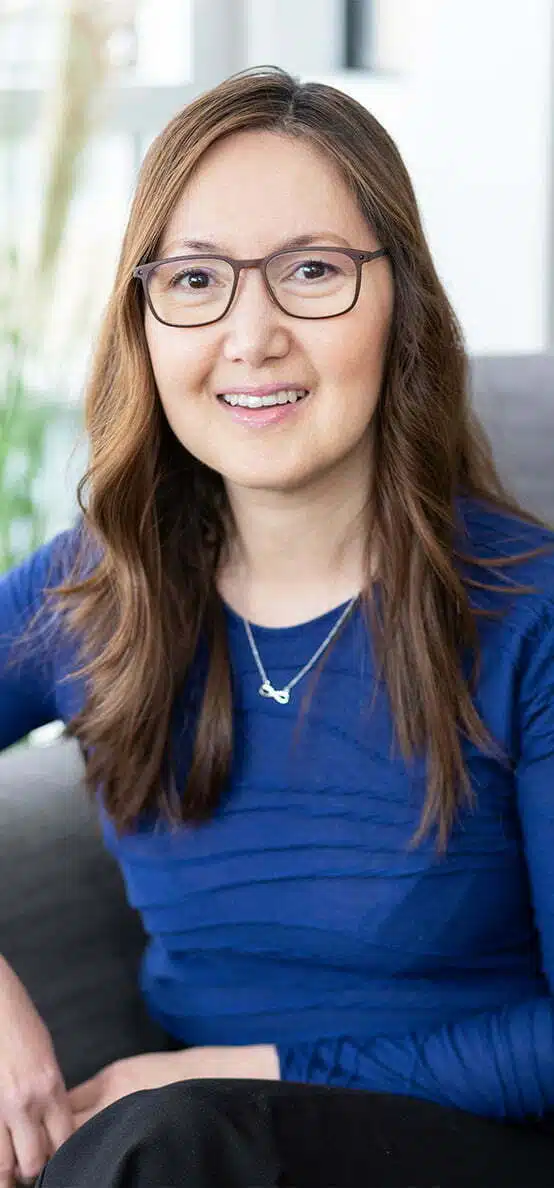

Individuals coming to therapy have a desire to change and heal. During the initial phase of therapy, it can feel uncomfortable to open up completely and share painful inner experiences right away. Individuals may fear judgement and the intensity and consequences of negative emotions, or they may be unable to identify and express emotions because this skill is often not learned or encouraged while growing up. I will do everything I can to convey acceptance and caring and gently encourage expression of feelings and validate them. When we are able to discuss our feelings and inner experiences, we are able to examine them and do the work to heal and move beyond them if they no longer help us.
The process of therapy is also not entirely linear and setbacks with old ways of thinking and acting occurs. This can feel frustrating and feelings of hopelessness may resurface. When this happens, I will support you with getting back on track. Your efforts and even small gains during the process of therapy make a difference in your journey forward. Stumbling during the process of change is normal and it can provide opportunity for growth.
I take a collaborative approach with individuals because I respect that you have control over your own life. Based on your specific concerns and goals, I will discuss with you which evidence-based therapy approach(es) may be helpful and the rationale. I will also check with you regarding any preferences before discussing a treatment plan with you. The pacing of change can be unique for individuals and I am flexible in providing support that reflects this.
Many times, we can get stuck in unhelpful ways of thinking that cause distress, anxiety, and depressive feelings. I can offer cognitive-behavioural approaches (CBT) to help identify triggering events and unhelpful thoughts that contribute to these feelings. CBT interventions can help you learn more adaptive ways of thinking and increase hope.
If you often experience intense negative emotional responses (such as anger) and have difficulty returning to a baseline level of emotional arousal, I can provide individual dialectical behaviour therapy (DBT) skills training sessions. DBT enhances capabilities, including those that involve regulating emotions, paying attention to the experience of the present moment (mindfulness), interpersonal effectiveness, and tolerating distress and surviving crises without making situations worse.
When traumas from past disturbing experiences continue to cause distress because the memory was not adequately processed, I can offer eye movement desensitization and reprocessing (EMDR) therapy as it targets the memory to change the way it is stored in the brain by incorporating the use of eye movements and other forms of rhythmic bilateral stimulation (e.g., taps) to reduce the vividness and emotion of the memory.
When couples come to therapy, they have often been struggling with entrenched unhealthy ways of relating with each other for quite some time. It takes hard work that can feel unnatural when first practising new techniques for validating and communicating with partners in the session and between sessions. I admire your efforts and will support you, to feel more comfortable in using new relationship skills so they become habitual and change is sustained after therapy.
My approach with couples therapy draws from Gottman Method interventions to give couples tools to have a healthy, secure relationship. I aim to help partners to know and understand each other, express themselves and their needs, reduce criticism, and manage conflict in healthy ways.
Conflict happens in all couples relationships. When two people are willing to build or enhance trust and are committed to each other, I can help you learn healthier techniques for interacting and communicating with each other.
You can learn more about how I support my couples through these approaches in One Life's guide to Choosing the Right Psychologist in Calgary for Your Marriage Counselling.
My focus in individual therapy is the singular person and their personal goals and growth. In couples therapy, relationship enhancement goals and relationship growth are at the centre.
However, with both individual and couples therapy, I establish trust and safety with all clients to enhance their comfort in doing the work.
In my childhood, I lived in a few different countries, which meant experiencing loss and needing to transition and adjust to change with each move. Developing new relationships and learning creative ways of relating with others was difficult and brought feelings of discomfort and uncertainty. Yet, there were also times that feelings of hope and contentment emerged when I learned novel ways of relating and had successfully established new relationships. Reflecting on these experiences, I see that while painful, they also provided opportunities for personal and interpersonal growth.
When I took my first psychology class in high school, I found it incredibly fascinating as learning about human behaviour, struggles, and capacity to adapt and develop new skills helped me understand myself and others more. I continued to take psychology courses in university and a passion for wanting to help others explore and increase understanding of their inner selves emerged. I took a meandering path in my career via systemic social work but have returned to my passion of providing therapy.
I believe that we can find meaning from our experiences, even when they are difficult and challenging. While there are times that we face hurdles and setbacks, overall we are moving forward and evolving. I offer a safe and compassionate space, as well as therapeutic support to help you in this process of personal learning and growth. I feel grateful and privileged to be a part of your journey towards change.
"*" indicates required fields